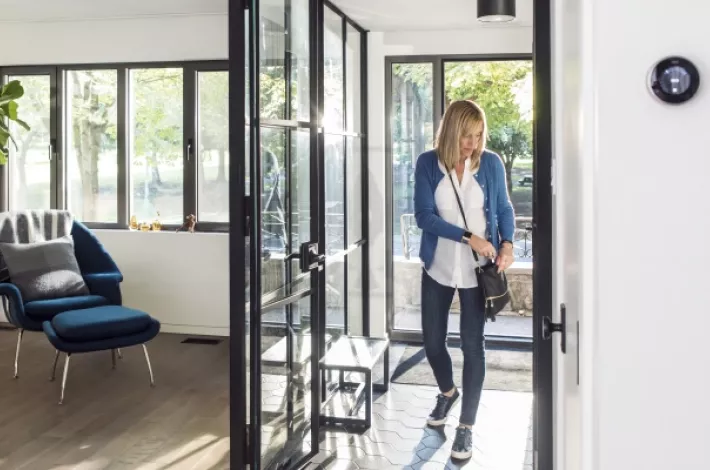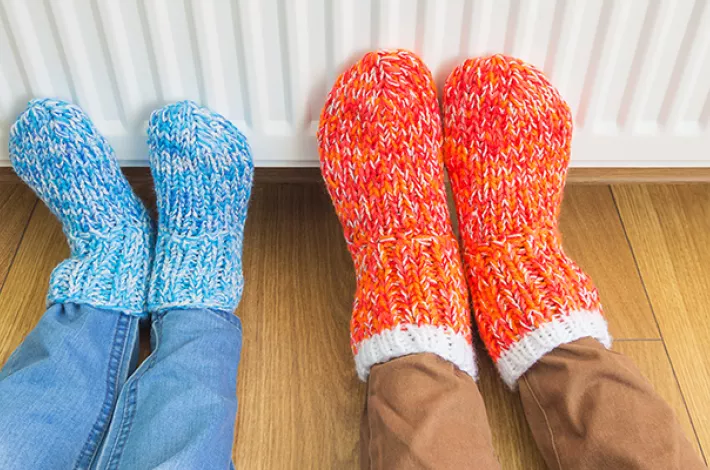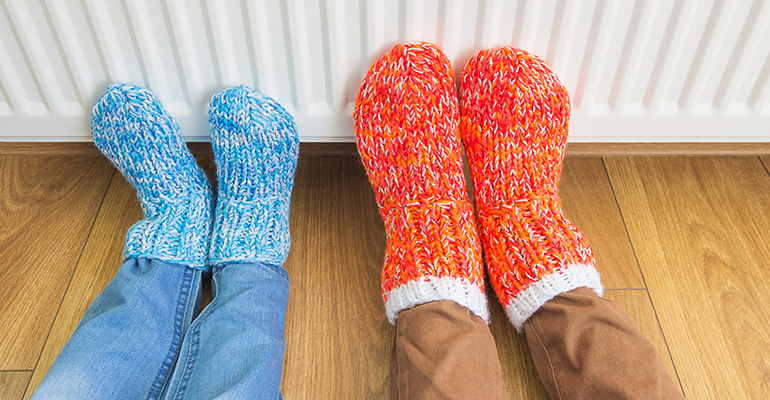
Safeguarding your home: Tips to give you peace of mind

Whether you live in a studio, condo or castle, your home is your cocoon: a refuge where you can relax, rest and spend quality time with family and friends. Here are a few tips to help you make sure your home is a safe and happy place where you sleep like a baby.
Do you have detectors?
Smoke and carbon monoxide detectors can be godsends and will keep you safe and sound around the clock. To ensure their effectiveness, here are some recommendations:
- Make sure they’re approved by the Underwriters Laboratories of Canada or the Canadian Standards Association (the casing must be marked “ULC” or “CSA”).
- Place at least one smoke detector on each floor, including in the basement, and near the bedrooms.
- If you own a combustion appliance[*] or you store equipment or a gas-powered vehicle (e.g. lawnmower, ATV or car) inside your home, place a carbon monoxide detector near high-risk areas. Carbon monoxide is an odourless, colourless gas that cannot be detected by humans and can cause discomfort and even death. Since it has the same density as air, it doesn’t rise. The detector should therefore be placed on the wall, unlike a smoke detector.
- Test your detectors regularly and change the batteries once a year, if necessary.
- Check the expiration dates of your detectors (marked on the casing).
Make sure you’re properly insured
You may never need to make a claim, but it’s important to take out an insurance policy that’s right for your situation. Here are a few things you can do to make an informed choice:
- Make a list of your belongings and what it would cost to replace them. This will give you a clear idea of how much insurance you need. Be sure to also calculate the cost of rebuilding your home in the event of a loss. Don’t base the value of your home on the municipal assessment or the real estate market, as it could be lower than the actual value. Hire a professional appraiser instead.
- Choose the type of coverage: the actual cash value (depreciated value) or the replacement cost. In the second case, the premium will be higher, but you will be eligible for more generous compensation to replace your belongings.
- Consider your civil liability and the amount of coverage that is appropriate for your situation. For example, if you have children or a dog, you could increase the amount of your coverage. This will cover you in the event of a third-party injury or legal action.
- Find out about your policy’s limitations and exclusions and add endorsements (additional coverage) if necessary.
- Shop around for your insurance: prices can vary considerably from one insurer to another. You can get discounts in some cases (e.g. if you insure your home and vehicle with the same insurer or your home is equipped with an alarm system connected to a remote monitoring station).
An emergency plan can make a difference
What would you do if a fire, earthquake or flood threatened your home? No one wants to live through these types of situations, but we all need to be prepared for them. That’s why it’s crucial to come up with a family emergency plan. It’s quick and easy to do, and it can make all the difference!
- Prepare an emergency kit and keep it in a safe place. This will help you get through the first few days following a disaster.
- Make a list of people to contact in an emergency.
- Make sure you have at least two emergency exits for each room of the house. If you live in an apartment, plan a route that doesn’t involve an elevator.
- Chart a route to leave your neighbourhood. Plan an alternate route in case some roads are blocked.
- Know how to turn off the water, electricity and gas supply, if necessary.
- Draw up an inventory of your belongings, including proof of purchase, photos or videos. Keep these documents and a copy of your home and auto insurance policies somewhere other than your home, such as your office or a friend’s home.
- Write down all the details about your family members’ health (e.g. medical issues, allergies, surgeries).
- Designate someone to pick up your children during school hours if you can’t get there. Make sure the contact information provided to the school or daycare is up to date.
- Choose a safe gathering place where you and your family members can meet in case you have to leave home in a hurry.
[*]A wood or gas fireplace or stove, a natural gas, propane or kerosene heater, a stove, a refrigerator, a barbecue, a water heater or other propane or gas appliance.
You may also like...





